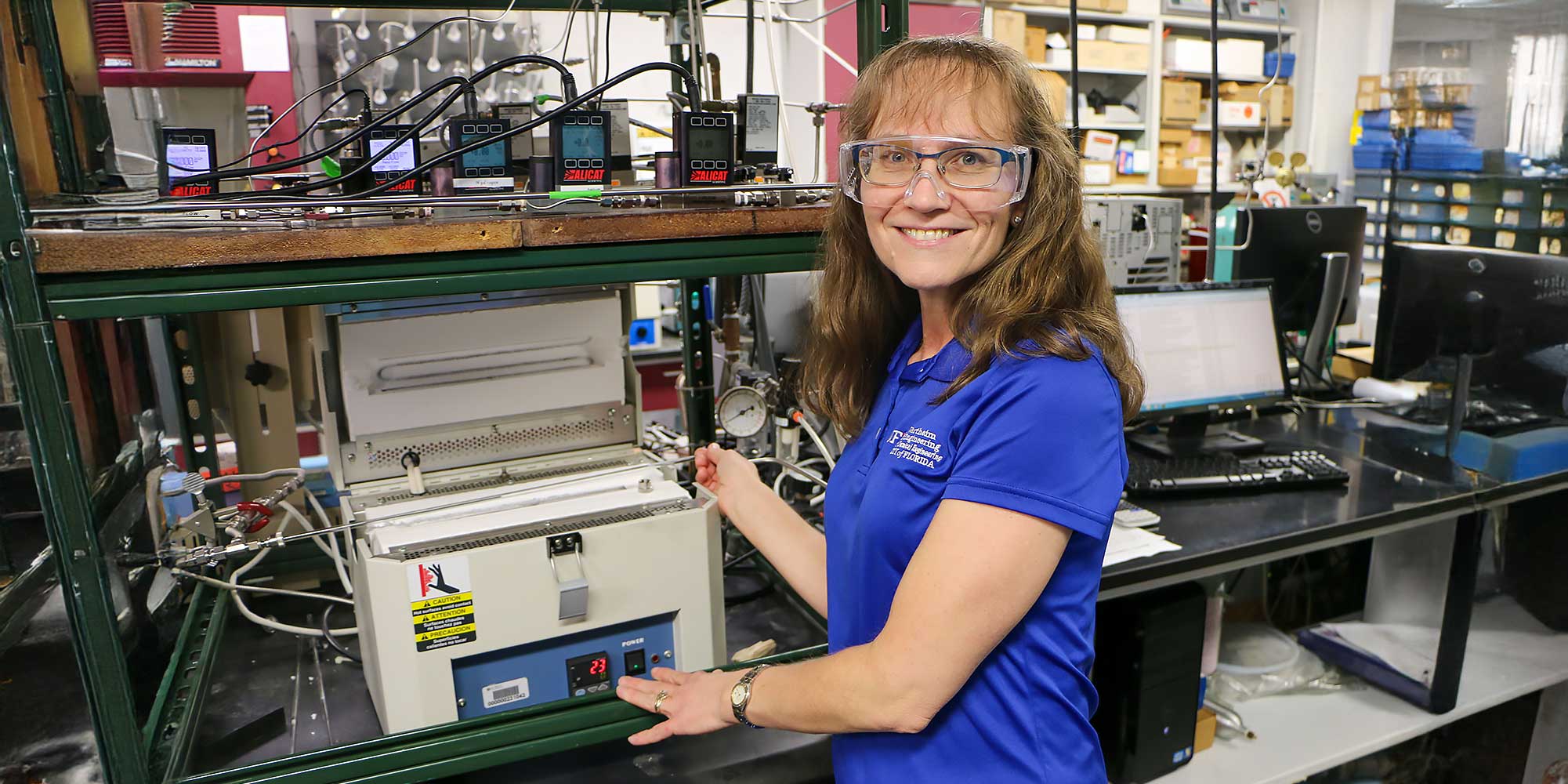Methane is the main component of natural gas and a potent greenhouse gas. What if this critical raw material could be converted into useful energy and valuable products more efficiently?
The environmental implications could be significant. If a catalyst could enable more efficient combustion of methane or more efficient conversion of methane to carbon dioxide (methane is a more potent greenhouse gas than carbon dioxide), the amount of harmful greenhouse gases released into the atmosphere could be greatly reduced.
Helena Hagelin Weaver, Ph.D., associate professor at the University of Florida’s Department of Chemical Engineering, is working to significantly improve that methane conversion. In a paper recently published in ACS Catalysis, Hagelin Weaver finds that a deeper understanding of the structure of the catalysts used in methane oxidation can lead to markedly improved performance.

